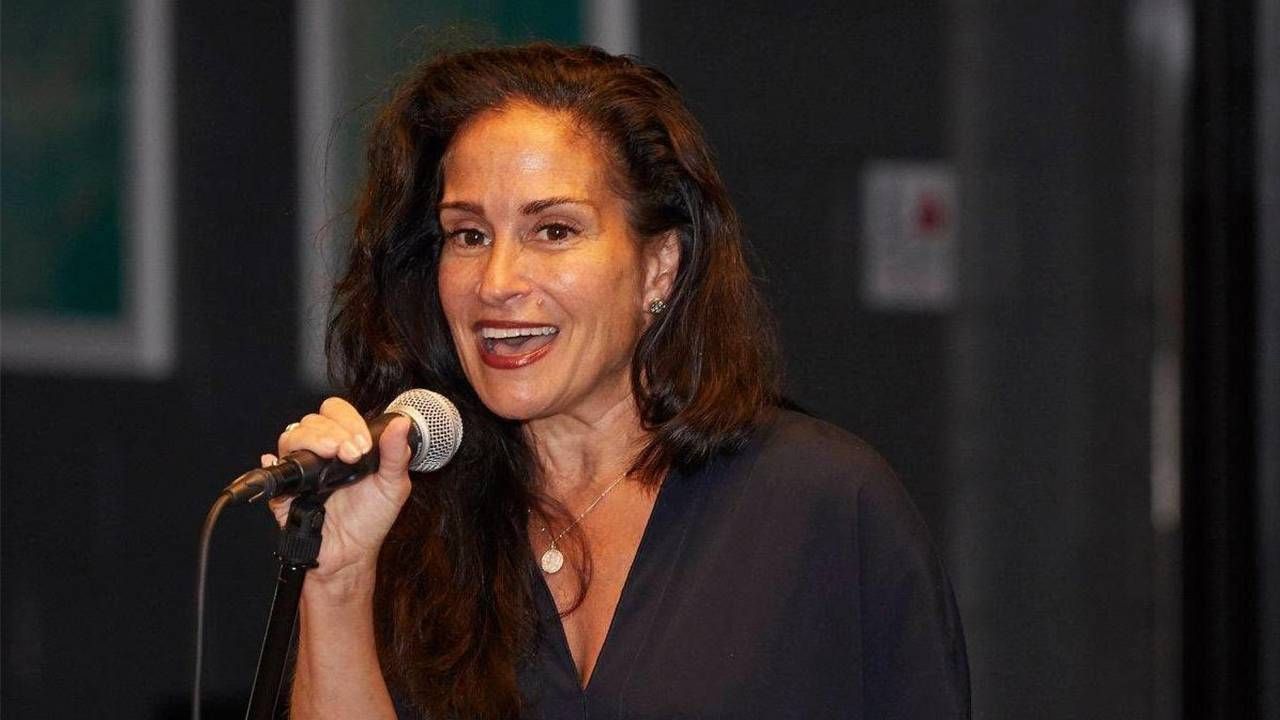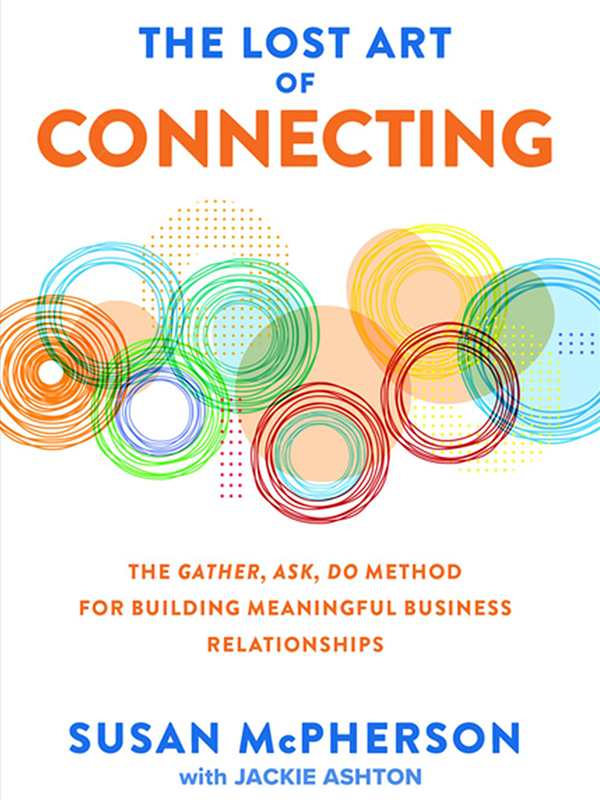The Lost Art of Connecting
Advice for brushing up on the how-tos of connecting, from author Susan McPherson
From the moment I picked up Susan McPherson's "The Lost Art of Connecting: The Gather, Ask, Do Method for Building Meaningful Business Relationships," I felt like I was in a conversation at a cocktail party. The kind that makes the party worth my time.

I've known McPherson — at 56, a powerhouse consultant who connects companies to social impact efforts — for years. She's built a reputation as that person who is one degree of separation from anyone you'd want to know.
"If you are in your fifties or sixties, what will keep you active and curious is engaging with people different from yourself."
While others guard their most prized relationships, I'm often struck by how generous the Brooklyn, N.Y.-based McPherson is with hers. I've also wondered how she gets any other work done given all the connecting she seems to do!
In her new book, McPherson makes a strong case that generosity isn't a barrier to productivity; it's the key to getting things done and creating lasting social change.
The book's subtitle speaks to "building meaningful business relationships," but "The Lost Art of Connecting" is about much more than business. It's about connection as a salve for the rampant social isolation so many of us have been feeling in the pandemic. And it's about forging human connection in service of something bigger than yourself.
I spoke with McPherson about all this recently; here are highlights of our conversation, edited for length and clarity.
Marci Alboher: Why is connecting a lost art?
Susan McPherson: Long before the pandemic, we had become heavily dependent on our electronic devices for all modes of communication. A friend told me that even when she hugged her son goodbye before he got on the school bus, she noticed that most of the schoolchildren were staring at their phones, rather than speaking with one another. My goal is to recapture the importance of human connection.
Do you believe that everyone has the ability to become a connector? What about people who don't get energized by building and maintaining lots of relationships?
It is NOT a numbers game. This is about building deep relationships with as few as ten people or as many as five thousand — and learning more about yourself.
I do believe most people have the capacity to be able to interact with small numbers and build connections from there.
Do you have any tips for connecting when you're out of work, in transition or retired?
One of the methodologies I explore in the book is that instead of focusing on ourselves, we focus on others — to see how we can potentially be helpful to them. Those of us in transition, out of work or retired still have unique and important gifts to offer others, including our experience, connections and wisdom.
I realize being out of work is a challenging situation, but it doesn't negate that you still are a valuable individual.
Your network spans generations. Why is it valuable to build connections with people older or younger than yourself?
I run a communications consultancy, and I wouldn't be able to do my job if I didn't surround myself with people who do not look like me, do not sound like me and who bring multitudes of perspectives to everything we work on.
Whatever we do, if we silo ourselves — by age, by race, by religion — we are missing the absolute beauty of life.
"Take a few moments to calculate all you have to offer individuals just beginning their careers."
If you are in your fifties or sixties, what will keep you active and curious is engaging with people different from yourself.
What would you say to those who want to build connections with younger people and may be feeling insecure about how to do that?
As I've aged, I have found that I have so much more to share. So, my advice is to look inside first and take a few moments to calculate all you have to offer individuals just beginning their careers.

If you're feeling nervous, admit it. It's totally fair to say, 'I'm out of my comfort zone.'
It all goes back to that vulnerability. When you open up to someone else, not every single person will reciprocate, and it is scary. You have to go into it with an open mind that not everyone is going to be gracious. But if you do that, you have an opportunity to learn something.
And what a model that is to show a young person you can do that. That's a gift you can be giving to a younger person — and to yourself.
Got any tips for people who find themselves coaching younger people about connecting?
Make a daily habit to text, call or email three to five contacts to just say 'Hello' and let them know you are thinking of them. It takes all of ninety seconds, and it's a good way to keep your network active.
I'd also tell them to get active on LinkedIn and Twitter. That doesn't necessarily mean blasting out constant information or racking up huge numbers of followers, but rather following topics, industries and individuals of interest to learn as much as you can.
Finally, look to your local community. Maybe there's a volunteer opportunity that will allow you to meet like-minded individuals. Or perhaps there's a virtual talk on something you don't know very much about that would allow you to broaden your viewpoint and diversify your network. Whatever it is, reach out and always think about ways you might be able to help someone else — by making a connection, providing some insight or offering your expertise.
You cite research showing that 'deep, authentic social networks can add up to fifteen years to your life.' That's persuasive! Was there other research that surprised you?
I absolutely loved all the research showing how connections lengthen our lives, but I also loved finding so many studies demonstrating that deeper connections brought people happiness.
The Harvard Business Review even had one study that actually demonstrated increased income! It examined twenty-six hundred women who attended the Conference for Women. Eighteen percent who'd signed up for the conference but had yet to attend received a promotion, compared with forty-two percent who had already attended the conference.
In other words, in the year after connecting with peers at the Conference for Women, the likelihood of receiving a promotion doubled. How's that for proving connections work?
There must be times when you are asked to make connections that you would prefer not to. How do you handle that?
It's okay to respond that you are unable to help right at this moment. But I recommend showing your true self and saying why: 'I have a new job so I need a few months to get settled,' or 'My mom is ill and needs my full-attention right now.'
If you open up to people with your own vulnerability, you will inspire trust and respect.


